What ItŌĆÖs Like to Face a Deadly Pandemic Behind Bars
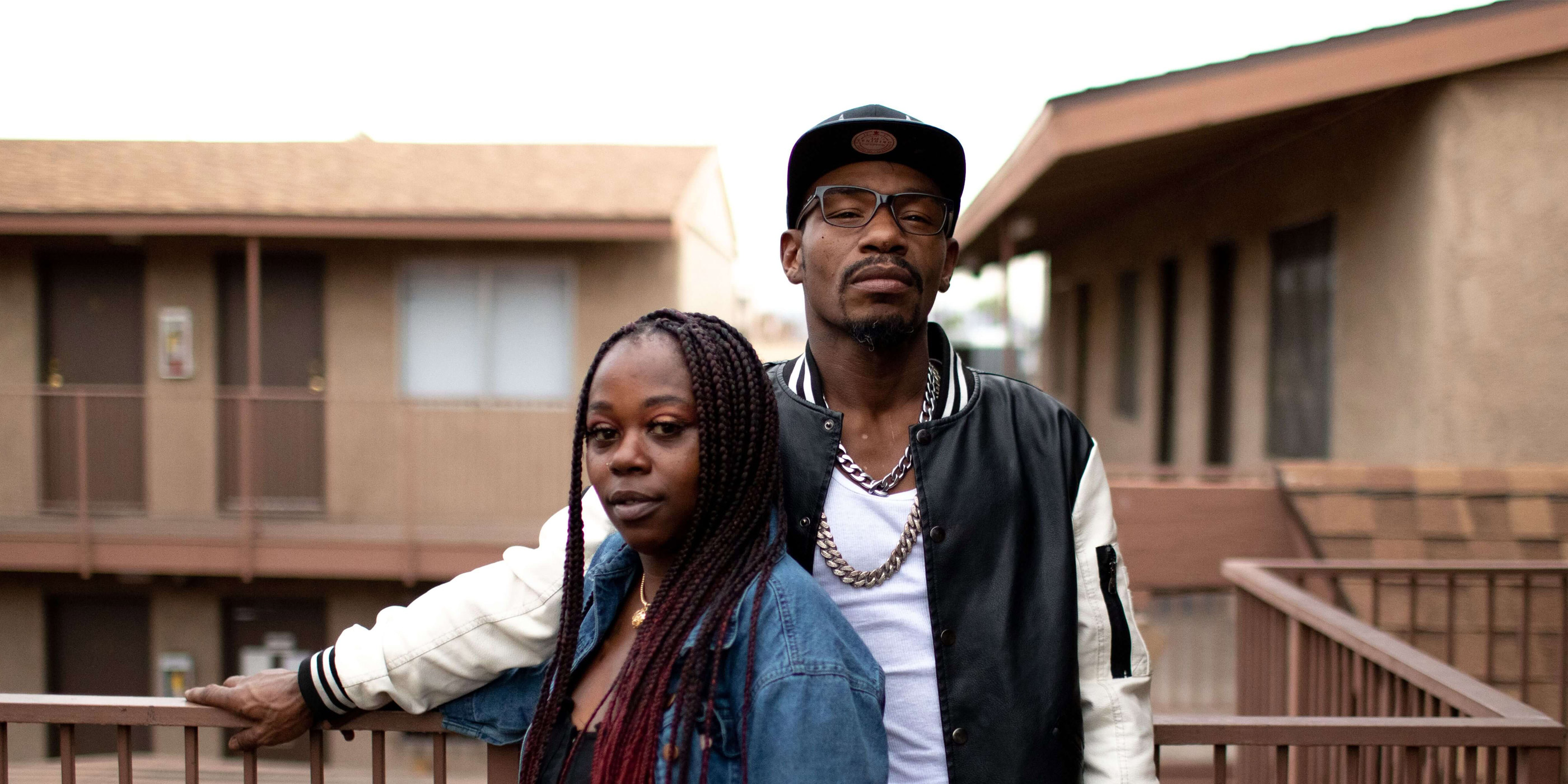
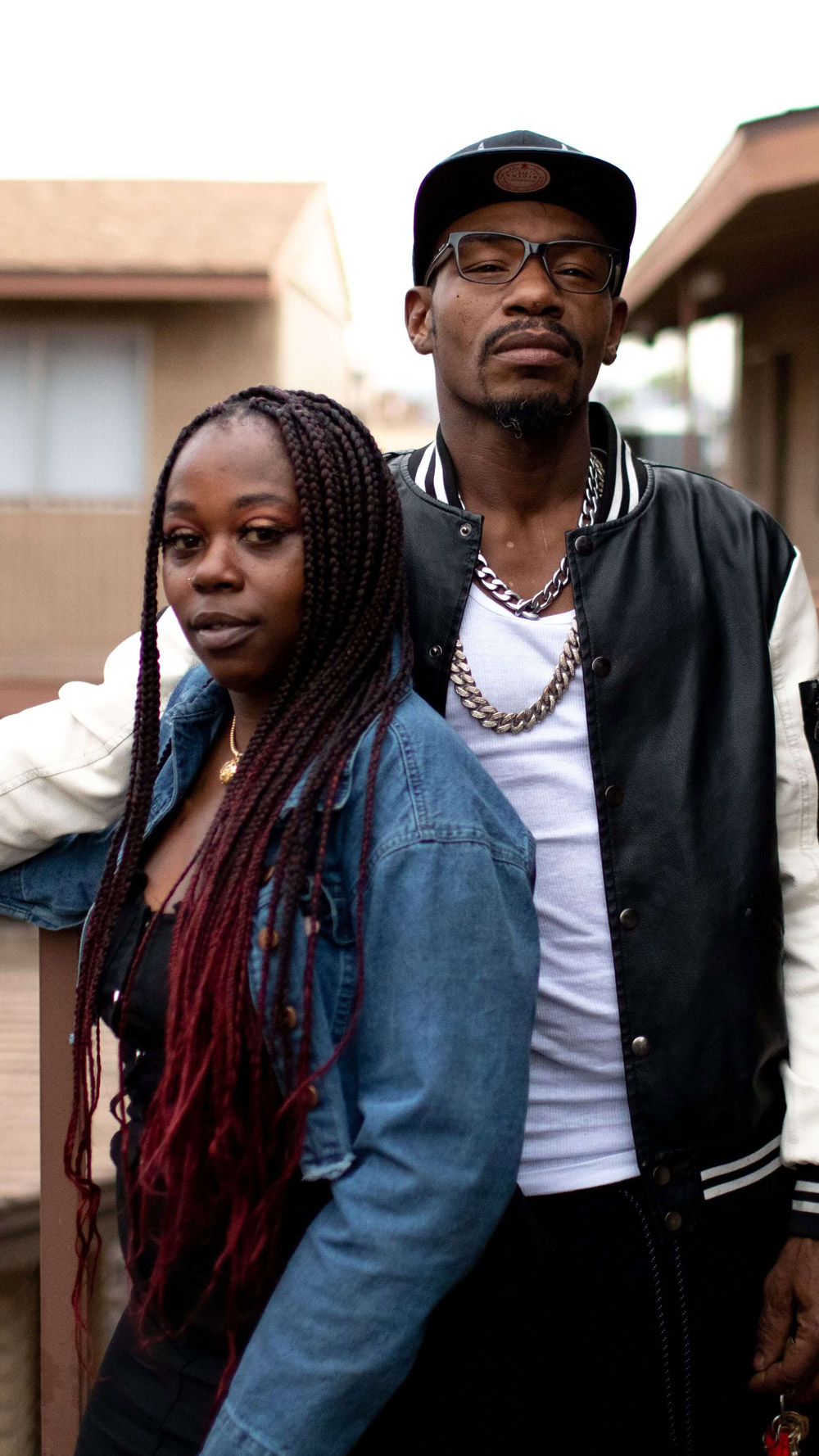
For incarcerated people, it can be impossible to prevent contracting COVID-19. Crowded quarters, limited access to hygiene, and inadequate medical care have made jails and prisons the sites of some of the worst outbreaks in the country. To date, more than 350,000 people have tested positive while incarcerated and 2,305 have died, in addition to 145 corrections staff. Some state and local governments have responded by authorizing the release of people who are elderly or immunocompromised. But there are still far too many people languishing in unsafe and inhumane facilities, sometimes not even able to communicate with .
Below, four formerly incarcerated people share their stories about what itŌĆÖs like to be incarcerated during the pandemic, while friends and family members are often left helpless on the outside.
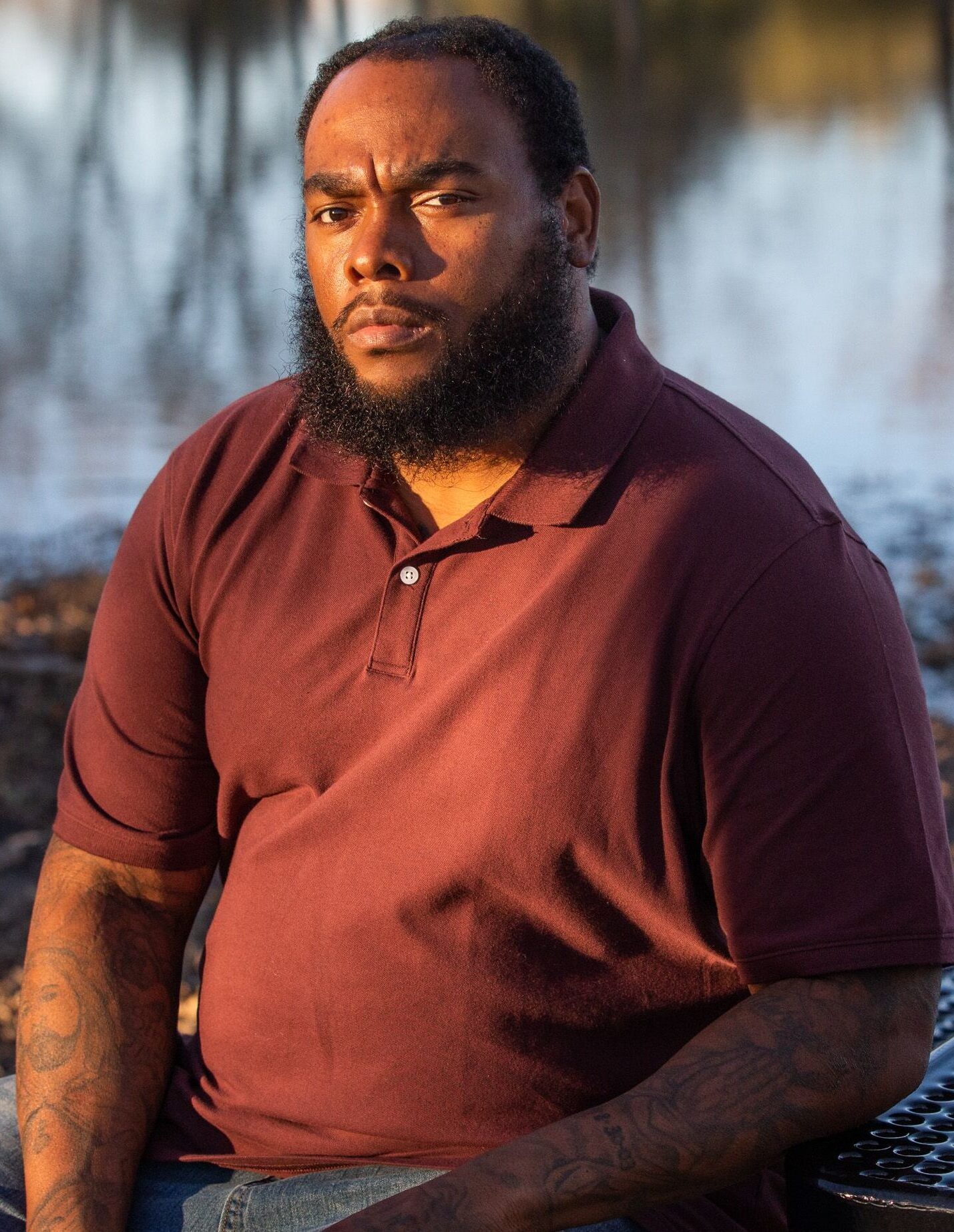
Lynda Gonzalez
Ideare Bailey
Dallas, Texas
I started getting sick about a week after arriving at Dallas County Jail. I tried to get help from the infirmary but the nurses kept sending me back to the dorm without even taking my temperature. I couldnŌĆÖt file a grievance either because I had no pen or paper. So I just kept going back to the clinic, and went about 15 times before they finally took my temperature and found out I had a 106-degree fever. But they still sent me back to my dorm even while I waited for my test results. A few days later, I tested positive for COVID-19 and they transferred me to the infirmary.
I thought I was going to die in there. They gave me no information about the virus or how to stop it from spreading. All I knew was that I was high risk because I have Type II diabetes, and they were not giving me enough insulin. If there was an emergency, I would have to bang on the windows to get a nurseŌĆÖs attention. All I could do was try to keep breathing and pray to make it through.
I thought I was going to die in there.
During my time in the infirmary, I had no contact with my family. My wife was calling the jail over and over, but the staff wouldnŌĆÖt let me use the phone. But I knew she was going to do whatever it takes, without me having to say anything. IŌĆÖve been with my wife for many years, and I feel blessed to have someone like her in my corner.
I ended up getting released because of my medical condition, but it took a while for them to finally let me out. When I finally got home, we sent our kids to stay with family while I recovered.
I feel like the jail could have done a lot more. Even though weŌĆÖre in a confined space, with a bunch of people that maybe did wrong, you still have to treat people as humans. The jail started taking measures after they kept getting complaints from a bunch of sick people, but it was kind of late for that.
To people who are incarcerated right now, I would tell them to pray. Because at the end of the day, people are already looking at you as some kind of bad or evil person just because youŌĆÖre incarcerated. So you have to help yourself. Try to keep something on your face, keep your distance. Pray.
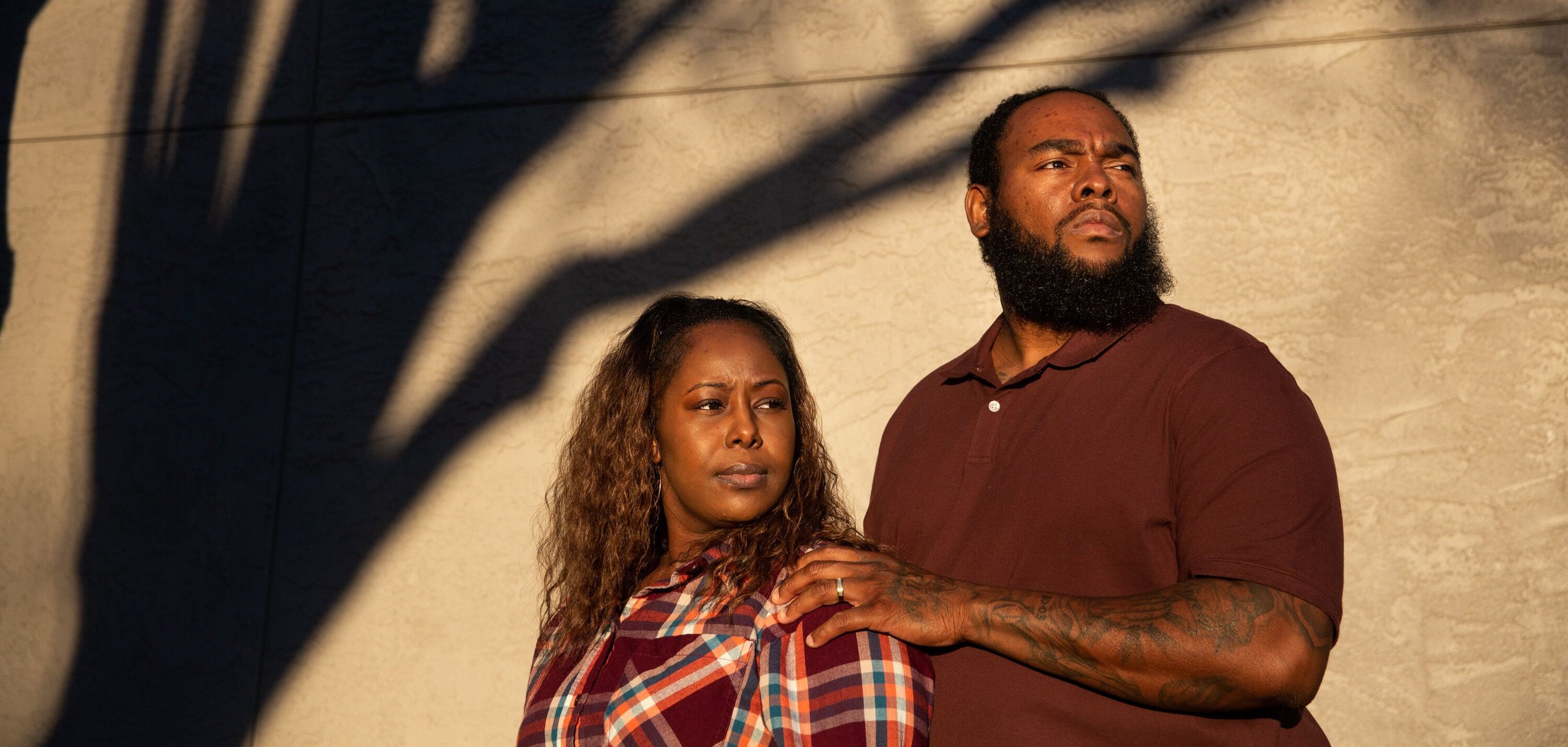
Lynda Gonzalez
Kivia Bailey
Dallas, Texas
Before Ideare even went to jail, I remember us watching the news thinking ŌĆśoh my God, jail is a bad place to be right now.ŌĆÖ Little did we know, seven days later that would be our reality when Ideare was incarcerated at Dallas County Jail. His incarceration was dangerous even before it began. I called him while he was in court for his intake, and I could hear people coughing all around him through the phone. I was panicking, but tried not to show it. I just told him to cover his face with his shirt.
Ideare and I kept in frequent contact for days, until one day I stopped hearing from him. I called the jail and found out they had taken him to the infirmary because he had tested positive for COVID-19. My husband never gets sick, even with his diabetes, so it was shocking when I finally got him on the phone and could barely recognize his voice. He was gasping, and barely had the strength to pick up the phone. At that moment, I was in the car with my kids. I didnŌĆÖt want them to know about how horribly their dad was being treated, and how scared I was.
I did everything I could to get him out of jail. I hired a lawyer to seek bail reduction, but even that wasnŌĆÖt enough, and I ended up having to sell my wedding ring to make a bail deposit. Even after all of that, it still took a while to get him out, because he needed an ankle monitor and none of the staff wanted to get near him to put it on because he was sick. All I wanted was to bring him home so wouldnŌĆÖt die in jail.
The day I finally picked up Ideare from the Jail, he had lost so much weight he was unrecognizable. I just started crying. My God, he looked completely different. He looked like he was close to death.
You never think your family is going to go through something like this until it happens. ItŌĆÖs not like watching it on TV, when you might think ŌĆśOh, maybe itŌĆÖs not so bad. Maybe they arenŌĆÖt treating inmates like that for real.ŌĆÖ But when you actually see for yourself, it hits you. Incarcerated people are not being treated like human beings. No one should be treated that way.
Catrina Balderrama
Los Angeles, California
The staff at Century Regional Detention Facility (CRDF) didnŌĆÖt know what to do with me when I tested positive for COVID-19 in April. I had only been there since mid-January and was among the first cases they knew about. I had a fever of 103.5 degrees, severe headaches, and was so sweaty I looked like IŌĆÖd jumped in a pool. I was especially worried because I was pregnant at the time. I ended up having a miscarriage while I was in jail, and I believe the terrible conditions and treatment at CRDF caused it.
I started feeling sick about a week before they gave me a COVID test, even though I sent written and verbal requests days before. During that time, I was living in a unit with 200 other women, locked up in five by ten foot cells literally piled on top of each other. ItŌĆÖs so crowded in there that youŌĆÖd be right next to a girl while she was using the toilet. We relied on the county to provide us with shelter and supplies, but there was never enough. You could go three days using just three sheets of toilet paper. Sometimes, you couldnŌĆÖt find even half a bar of soap. The staff seemed like they didnŌĆÖt care at all.
After I got sick, they sent me straight to the ŌĆ£hole,ŌĆØ a basement area where they keep people for disciplinary segregation. One of the guards told me I would die in there. They put me in a single person cell that was in disgusting condition, with old food under the bed and feces on the walls. I received only one paper mask, no soap, and they refused to give me my medicine, including an inhaler for my asthma. For days, I went without any meds or showers. I wasnŌĆÖt allowed to contact my family or even check on my kids.
ŌĆ£See you later in hell when you die from COVID-19.ŌĆØ
The jail staff seemed like they were trying to hide any information about COVID-19 from us. Anytime it came on the news, they would switch it off. They didnŌĆÖt let the other inmates know I had tested positive because they didnŌĆÖt want people to panic and bombard the mini clinic, which was already in bad shape even before the virus. The staff didnŌĆÖt even tell me when I had a miscarriage. They knew I had lost the baby when they drew my blood for testing, and kept me on my prenatal diet without even telling me I wasnŌĆÖt pregnant anymore. I have no doubt that their poor medical treatment and all the stress caused my miscarriage.
The treatment from staff was so dehumanizing. They bullied us and made us feel like scum. One time, an officer came and told me my release papers had come through and I was going home. When I got excited, she said, ŌĆ£April Fools,ŌĆØ and then, ŌĆ£See you later in hell when you die from COVID-19.ŌĆØ The other deputies outside my cell laughed about it. I was told I would die in the hole, and I believed it.
The worst part was that I was not able to contact my family. I had to ask one of the nurses to call them and let them know I was sick. I was really worried about my mom, who is in a coma. I am her conservator and I was afraid she might die and IŌĆÖd never know.
I was finally released from jail on April 24, 2020. By that time, I had lost my home, kids, my job, my puppy ŌĆö everything. I had lost a baby due to the staffŌĆÖs negligence and I didnŌĆÖt know whether I would ever be able to have another. Right now I am homeless. My daughter is living with my mother-in-law until I find a place to live. My son is in Ontario. My kids miss me and need me.
There is no justice whatsoever in our criminal justice system. People look at us like we are all bad people because we are in jail. I wish everybody would understand we are mothers, daughters, sisters. We are people.
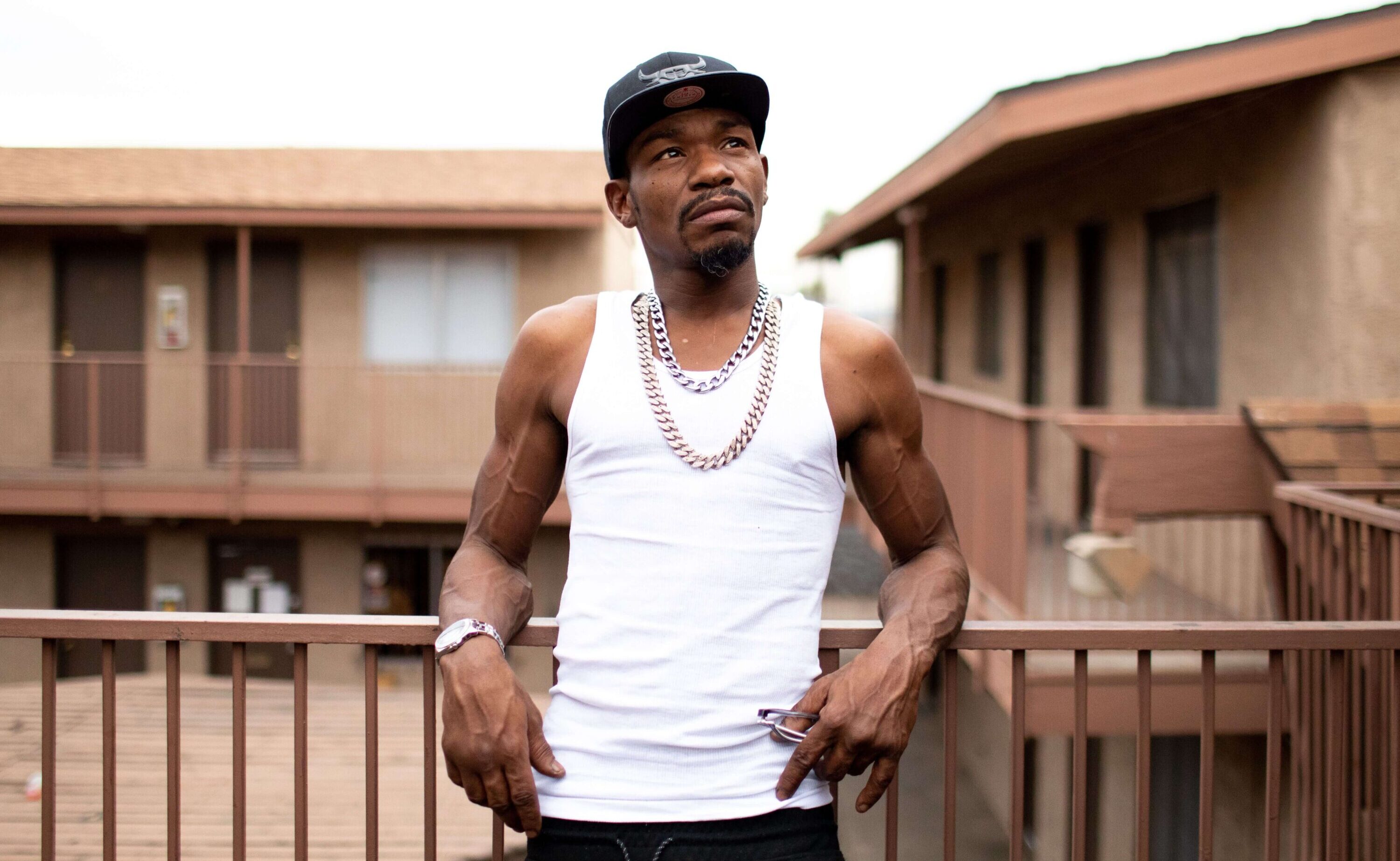
Courtney Pedroza
Hendrey Boykins
Phoenix, Arizona
I was really scared when I went to jail in February 2020. I had just been diagnosed with tuberculosis, and I also have an irregular heartbeat and frequent high blood pressure, which makes me high-risk to COVID-19. I just wanted to get out alive.
I got sick immediately and repeatedly over the next few months. I had a dry cough, sore neck, and even spat up blood. But I was afraid to tell the staff about my symptoms because I knew they were throwing sick people in the hole. Other people in my pod felt the same way. Nobody wanted to die alone in the hole.
Because of my medical conditions, I was very careful about trying not to catch the virus even though it seemed impossible sometimes. Every pod has 15 cells, each with a triple bunk bed. There isnŌĆÖt even a full armŌĆÖs length between mattresses. We shared a toilet, sink, table, and chair that rarely got cleaned. The entire pod shares two showers that get hosed down only once a week. Shared phones and railings hardly ever get cleaned. We were expected to take care of ourselves, but they never gave us the supplies we needed.
I did what I could to try to protect myself. Whenever I used the phone, I would put socks on my hands and tie plastic bags over them, or wrap the phone with my one dirty towel. They only gave us one paper mask. I wore mine every day even though it got dirty and smelled. A lot of other inmates didnŌĆÖt wear theirs, and it was the same with staff. I tried to be safe and stay in my cell always, but my cellmates were leaving and coming back all the time. I was afraid that I would catch COVID-19 no matter how hard I tried to protect myself.
In July, I got sick again and so did many others in my housing unit. This time they tested us and put me in medical isolation at 4th Avenue Jail. I tested positive for COVID-19 and later learned that many people in my housing unit did too. When I was in medical isolation, the guards would not give me a blanket or a pillow, which made my headache worse. The medical staff would just take my temperature and not check anything else or would come and ask me questions through the door, but I couldnŌĆÖt hear them. They didnŌĆÖt care. They just walked away. I still had symptoms when they released me from medical isolation but the staff ignored it.
I was released from Maricopa County Jail in late July. Now IŌĆÖm back home with my family and helping take care of my granddaughter so my daughter can go to school on a scholarship she won. WeŌĆÖre close, and weŌĆÖre going to stay close through this pandemic.
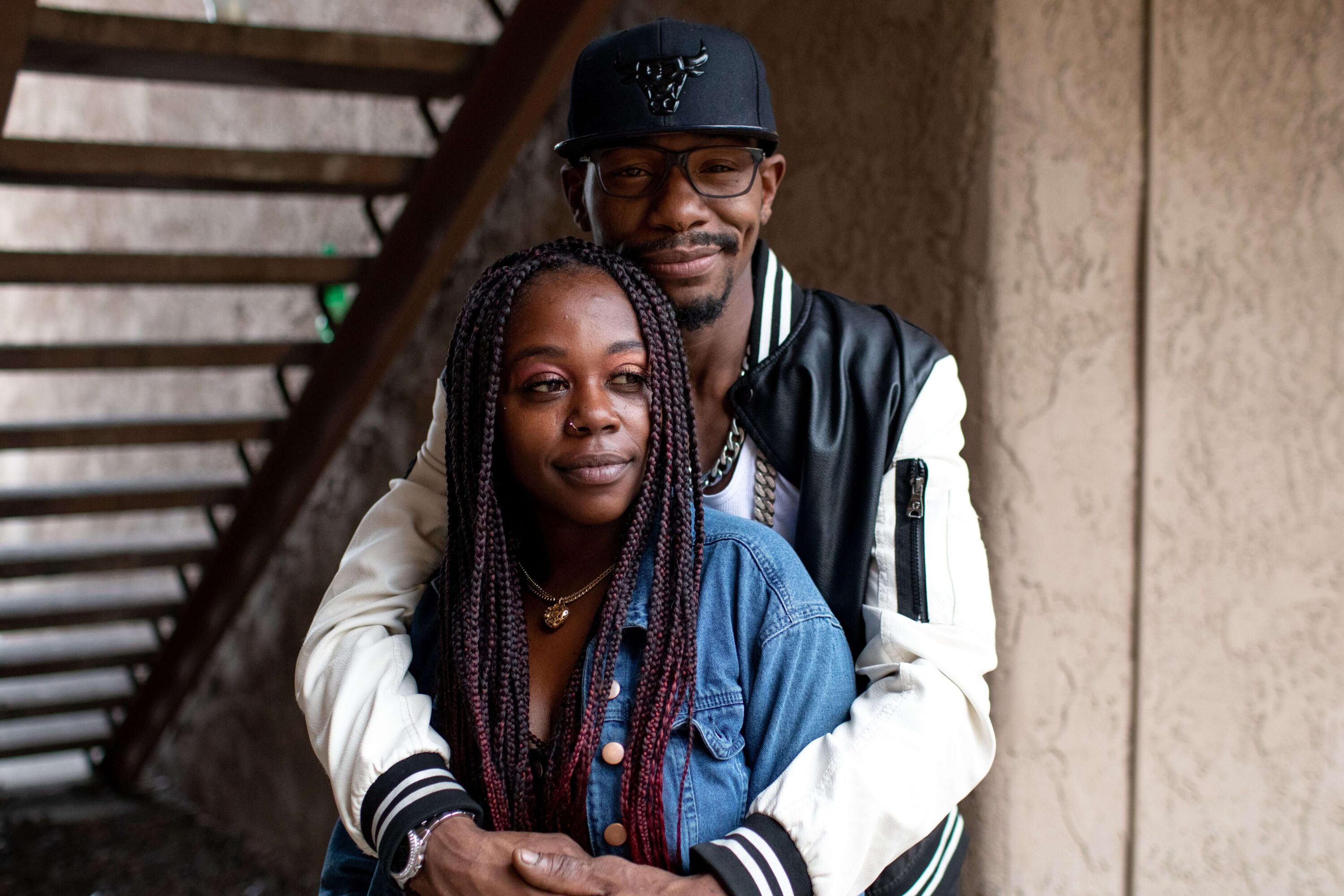
Courtney Pedroza
Ximena
I fled to the U.S. from Mexico two decades ago after my husband was kidnapped for ransom and killed. I started a new life and ran a homeopathic pharmacy as I watched my three children grow up. But in 2019, I was arrested for illegal reentry during an unlawful traffic stop, and sent to CoreCivic detention center (CCA), where I spent many months in physical and emotional pain. I have several medical conditions, including diabetes, high blood pressure, and kidney cancer, and was not allowed cancer treatment.
We first heard about the coronavirus on TV, not from staff. Then people started getting sick. CCA made some changes, like stopping visitation, but they did not supply us with enough PPE and cleaning supplies. If anybody complained that they werenŌĆÖt feeling well, the staff would just give us some aspirin or Tylenol, treating it like an allergy or flu. During that time, we were only allowed one shower every three days, and continued to live in crowded cells. I thought I would die from either COVID-19 or cancer. I had not received any cancer treatment since July of 2019, and my pain worsened. The medical staff did not help me, so I had to heat up a towel or sock in the microwave for relief, or sometimes some of the girls would give me painkillers. It was a hopeless situation. A lawyer was trying to get me out on bail or have someone vouch for me in court, but their requests were denied. The staff were trying to hide the dangers of COVID-19 from us, but we were not fooled.
I was deported at dawn on the day after my final court hearing. Since then, my life has changed 360 degrees. I lost the life I had built ŌĆö my home, my business, my two daughters who are still there. ItŌĆÖs hard to start over at my age, especially with my illnesses. Sometimes I still donŌĆÖt have the strength to live. The traumas I experienced in detention make me depressed, and some nights I canŌĆÖt sleep. In detention, itŌĆÖs like youŌĆÖre not even a human being. Life goes by very slowly. You constantly feel as if you are at deathŌĆÖs door. You see people hanging themselves in their cells, or cutting their wrists. I used to cry every day, but now, itŌĆÖs like I donŌĆÖt have any tears left.
I used to cry every day, but now, itŌĆÖs like I donŌĆÖt have any tears left.
Hui de M├®xico a Estados Unidos hace veinte a├▒os, despu├®s de que a mi esposo lo secuestraran por dinero y lo mataran. Empec├® una vida nueva, tuve una farmacia homeop├Ītica mientras criaba a mis tres hijos. Pero en el 2019, me arrestaron por haber reingresado al pa├Łs ilegalmente, durante un control de tr├Īfico ilegal y me enviaron al centro de detenci├│n CoreCivic (CCA), en el que pas├® muchos meses de dolor f├Łsico y emocional. Tengo varias condiciones de salud, entre ellas diabetes, presi├│n alta, c├Īncer del h├Łgado y no me brindaron tratamiento para el c├Īncer.
Nos enteramos del coronavirus por la televisi├│n, no por el personal de la detenci├│n. Luego la gente se empez├│ a enfermar. CCA implant├│ algunos cambios, como detener las visitas, pero no nos proveyeron suficiente equipo de protecci├│n (ŌĆ£PPEŌĆØ) ni materiales de limpieza. Si alguien dec├Ła que no se sent├Ła bien, el personal solamente nos daba aspirina o Tylenol, como si se tratara de una alergia o gripe. Solamente nos permit├Łan ba├▒arnos cada 3 d├Łas y continuamos viviendo en celdas llenas de gente. Pensaba que me iba a morir o de COVID-19 o de c├Īncer. No hab├Ła recibido tratamiento para el c├Īncer desde julio de 2019, y mis dolores empeoraban. El personal m├®dico no me ayudaba, as├Ł que ten├Ła que calentar toallas o calcetas en el microondas para aliviar el dolor, o a veces algunas de las muchachas me consegu├Łan analg├®sicos. Era una situaci├│n desesperanzadora. Un abogado estaba tratando de sacarme bajo fianza o que alguien me avalara en corte, pero las peticiones fueron denegadas. El personal trataba de escondernos los peligros del COVID-19, pero no nos lograron enga├▒ar.
Me deportaron al amanecer el d├Ła despu├®s de mi vista final en corte. Desde entonces, mi vida ha dado un cambio de 360 grados. Perd├Ł la vida que hab├Ła construido ŌĆö mi hogar, mi negocio, a mis dos hijas que todav├Ła est├Īn ah├Ł. Es dif├Łcil volver a comenzar a mi edad, especialmente con mis enfermedades. Todav├Ła a veces no tengo la fuerza para seguir viviendo. Los traumas que sufr├Ł en la detenci├│n me deprimen y algunas noches no logro conciliar el sue├▒o. Ingresada en la detenci├│n es como si ni siquiera fueses un ser humano. La vida pasa muy despacio. Ves c├│mo la gente se ahorca en sus celdas o se corta las venas. Sol├Ła llorar todos los d├Łas, pero ya no me quedan m├Īs l├Īgrimas.
Note: ŌĆśXimenaŌĆÖ is a pseudonym used to protect her privacy.
